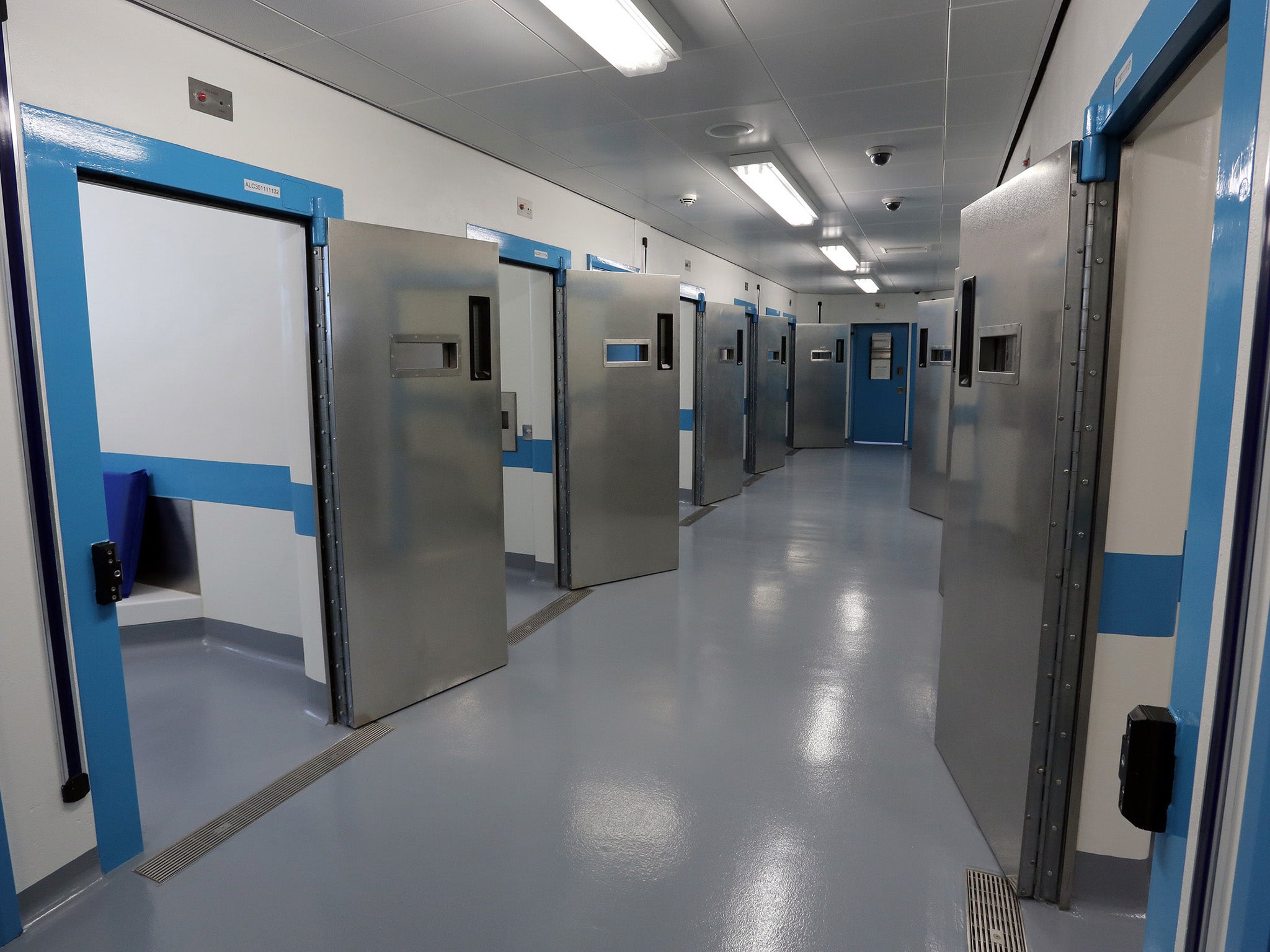New terror laws could violate 'fundamental legal rights', Law Society warns
Proposals would allow police officers to delay consultations with solicitors or sit in on them

Your support helps us to tell the story
From reproductive rights to climate change to Big Tech, The Independent is on the ground when the story is developing. Whether it's investigating the financials of Elon Musk's pro-Trump PAC or producing our latest documentary, 'The A Word', which shines a light on the American women fighting for reproductive rights, we know how important it is to parse out the facts from the messaging.
At such a critical moment in US history, we need reporters on the ground. Your donation allows us to keep sending journalists to speak to both sides of the story.
The Independent is trusted by Americans across the entire political spectrum. And unlike many other quality news outlets, we choose not to lock Americans out of our reporting and analysis with paywalls. We believe quality journalism should be available to everyone, paid for by those who can afford it.
Your support makes all the difference.New terror laws proposed by the government could violate “fundamental legal rights” by giving police the power to delay suspected terrorists’ access to a solicitor, lawyers have warned.
The Counter-Terrorism and Border Security Bill states that detainees in England, Wales and Northern Ireland can consult a solicitor “as soon as is reasonably practicable, privately and at any time” – with exceptions.
It says police officers can question suspects before they receive legal advice “if they reasonably believe that postponing the questioning until then would be likely to prejudice determination of the relevant matters”.
Police would be able to delay the right to consult a solicitor in person for the same reason, or if the consultation would risk public safety, the loss of evidence or allow other suspects to be alerted to the investigation before they can be caught.
Alternatively, the bill would empower a senior officer to stipulate that a detainee can only consult a solicitor in the “sight and hearing of a qualified officer”.
The proposals, which include jailing people who enter “designated areas” abroad and making clicking on terrorist propaganda a criminal offence, will next be debated in the House of Lords next month.
The Law Society of England and Wales said “legal rights could be put at risk” if the Counter-Terrorism and Border Security Bill is passed in its current forms.
“Everyone under suspicion of a crime should be able to access confidential legal advice, particularly when facing serious charges,” said the society’s president, Christina Blacklaws.
“The idea people could be questioned for an hour before being able to get legal advice runs against all the usual standards of justice.
“Even after an hour, a suspect would have to proactively request a solicitor, rather than being offered legal support.
“The government needs to ensure everyone suspected of a crime is entitled to a solicitor and properly informed of their legal rights.”
She said the possibility of a police officer sitting in on legal consultations would damage confidentiality, which “has long been affirmed as a fundamental human right”.
“In our view, it is unacceptable that this principle should be undermined in such a serious case where legal advice is more important than ever,” she added.
A Home Office spokesperson told The Independent: “The UK faces a sustained threat from hostile state activity and it is essential that police officers have the power to question individuals at UK ports and the border area to determine whether they pose a threat to our national security.
“The Schedule 3 Code of Practice will mirror that of Schedule 7, where an examining officer should, where feasible, permit an individual being examined but not detained, access to legal counsel if they request it.”
Other proposals contained in the bill have been branded “Orwellian” by human rights groups but the government emphasised that they are being scrutinised by parliament and the courts.
The Liberty human rights group called the proposals to jail people for entering designated areas – which could include Isis territories – “deeply concerning” after the government’s adviser concluded the offence would “not be worthwhile”.
MPs, peers and the United Nations had already raised human rights concerns over proposals to make accessing terrorist propaganda online a criminal offence.
The Joint Human Rights Committee found the wording of the law vague and told the government it violated Article 10 of the European Convention on Human Rights (ECHR).
“This clause may capture academic and journalistic research as well as those with inquisitive or even foolish minds,” MPs and peers concluded.
“The viewing of material without any associated intentional or reckless harm is, in our view, an unjustified interference with the right to receive information.”
The UN special rapporteur on the right to privacy accused the British government of straying towards “thought crime” with the law.
Max Hill QC, the outgoing Independent Reviewer of Terrorism Legislation, told the Joint Human Rights Committee that the law’s net was “far too fine”.
His post will be vacant when he becomes the director of public prosecutions in November because the Home Office has not yet started recruitment for a replacement.
Mr Hill has previously hit out at the prospect of “knee-jerk legislation in response to any outbreak of terrorist activity”, warning: “There remains an urgent need for my successor to continue this work in my absence.”
The QC, who has prosecuted several high-profile terror cases, said the government had taken several months to respond to his reports on the operation of current terror laws and criticised the “odd” decision not to let him see the documents until they were published publically.

“All of this leads me to reinforce my call for the government to get on with the urgent task of appointing the next Independent Reviewer,” he said last week.
“After all that we have been through during 2017, there has never been a more important time for robust and entirely independent scrutiny of our legislation, and for a national conversation about where we go next in maintaining the twin imperatives of national security and fundamental rights.”
Mr Hill called for a “new and independent lawyer” to carry on the work, adding: “The passage of the Counter-Terrorism and Border Security Bill 2018 through parliament requires the assistance of an experienced lawyer who is entirely free from the machinery of government.”
A spokesperson for the Home Office said a suitable candidate would be hired “in due course”, but Ms Blacklaws echoed Mr Hill’s concern.
“We recognise the importance of law enforcement agencies having the power to protect our national security, but this must be balanced with the rights of individuals. There is no point in giving up our rights to protect our rights,” she said.
“The independent adviser plays an important role in ensuring accountability. That this role might be left empty at a time when this significant piece of legislation is being rushed through is deeply concerning.”
In a letter to the Joint Human Rights Committee, security minister Ben Wallace, said: “When powers impact on human rights, they must be ‘necessary in the pursuit of a legitimate aim, and proportionate to that aim’.
“I strongly believe that stopping terrorism is a legitimate and just aim, and that given the nature of the threat we face, enabling law enforcement agencies to intervene earlier to stop such plots is a proportionate way to protect the public from the great harm caused by a terrorist attack.
“The government has a duty not only to protect the rights of those who are investigated and prosecuted, but to preserve the fundamental right to life of those who may be targeted by terrorist and hostile state activity.”
Join our commenting forum
Join thought-provoking conversations, follow other Independent readers and see their replies
Comments